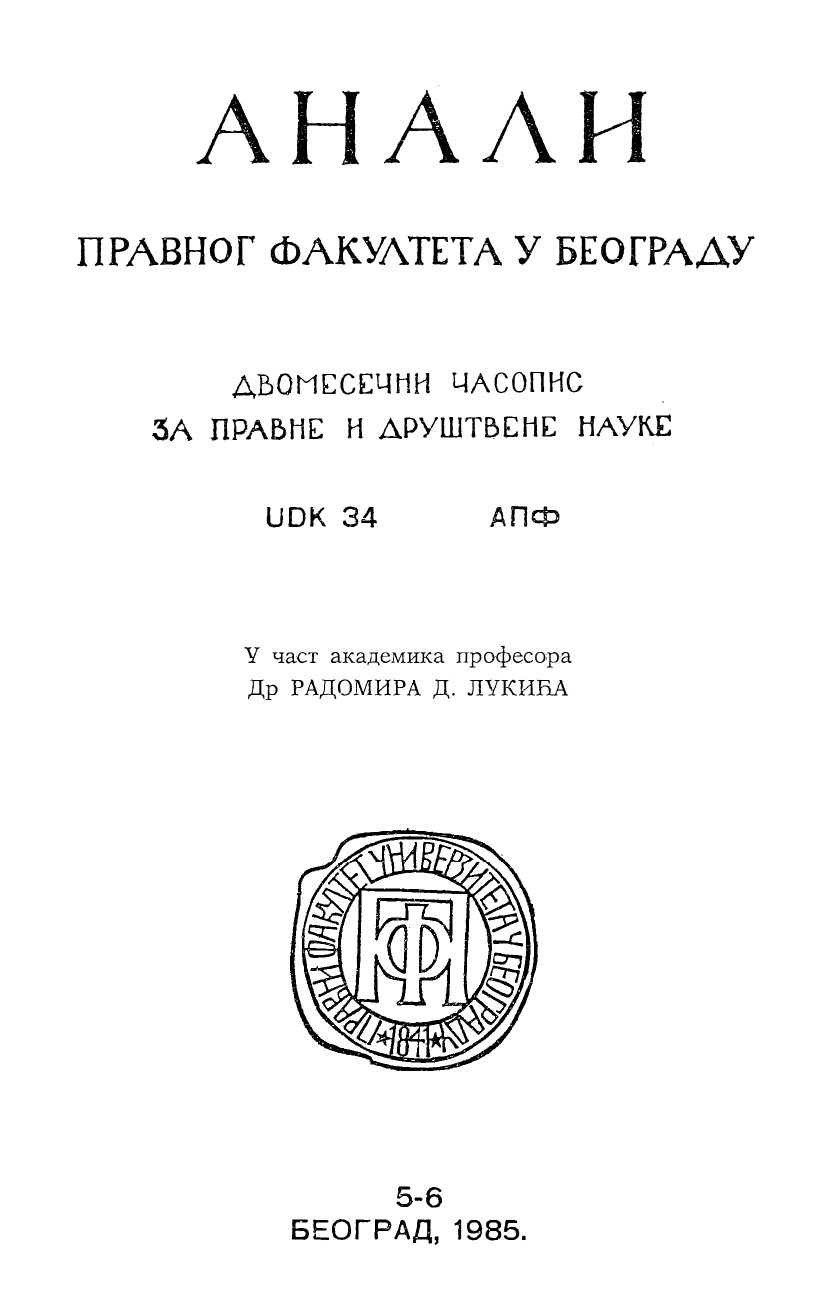О „ДРЖАВНОМ” И „САМОУПРАВНОМ” ПРАВУ
»STATE« AND »SELF-MANAGEMENT« LAWS
Author(s): Radovan PavićevićSubject(s): Law, Constitution, Jurisprudence
Published by: Правни факултет Универзитета у Београду
Summary/Abstract: The law can be understood and explained if a normative element in it is viewed together with economic and social relations regulated by legal norms, and influenced by them too. In addition, the law is always connected to the state. In other words, it is determined by both of these elements. The law is created together with creation of the class society and it withers away with the gradual disappearance of that society. In the transitional period, i.e. the one of the change from capitalism to socialism, the law too is transformed, while assuming the elements of communist self-management. Since the character of social relations, in terms of its socio-class nature, is in essence unique in a socialist society, the process of transformation of law too has to develop as a unique process. Therefore the conceptions are wrong which in Yugoslav theory divide the law into the self-management amid the state one as two opposing .types of law. In such a way they neglect the above mentioned necessity. According to these conceptions, the self-management law is founded mostly on the free-will acceptance, while the state law is ensured predominantly by the state sanction. Accordingly, the self-management law allegedly withers away more rapidly then the state law, if the latter one withers away at all. This is why one should insist on extending the self-management law at the expense of the state one. This conception is, to quite a degree, visible in Yugoslav practice too. Moreover, the practice itself shows the inadequacy of that conception through the differing approaches, the incoherency and conspicuous disfunctionality of our law in its entirety. The norms of the so-called self-management law which are not provided by the sanction of the socialist state, or which have no adequate sanction, are not implemented entirely, and as such cannot fulfil their role. They, in fact, are not legal norms in terms of their essence but rather some free social norms with very little positive effect. The author therefore pleads that the norms enacted by the autonomous bodies be sanctioned by the »state«, so that together with the »state law« they could be amalgamated into a unique system of socialist self-management law. The withering away of law in the transitional period should not be conceived in the process of decreasing of number of provisions otherwise sanctioned by the socialist state, but rather in the change of character of social relations, meaning also of the sanction, which more and more becomes a »sanction« of the social authority.
Journal: Анали Правног факултета у Београду
- Issue Year: 33/1985
- Issue No: 5-6
- Page Range: 651-661
- Page Count: 11
- Language: Serbian

